The title, father of modern education, is attributed to Jan Amos Komensky, also known as John Amos Comenius. He was born on March 28, 1592 in Nivnice, Moravia (which is now part of the Czech Republic) and he died on November 15, 1670.
From the persecution and hardships he suffered in his life, he came to develop a philosophy, called Pansophism, which emphasized political unity, religious reconciliation, and cooperation in education. This philosophy of Pansophism related education to everyday life and called for a systematic relationship to be developed for all knowledge.
He advocated teaching in the common or vernacular language of students rather than in Latin, and the establishment of a universal system of education with opportunities that included women and peoples of all nations.
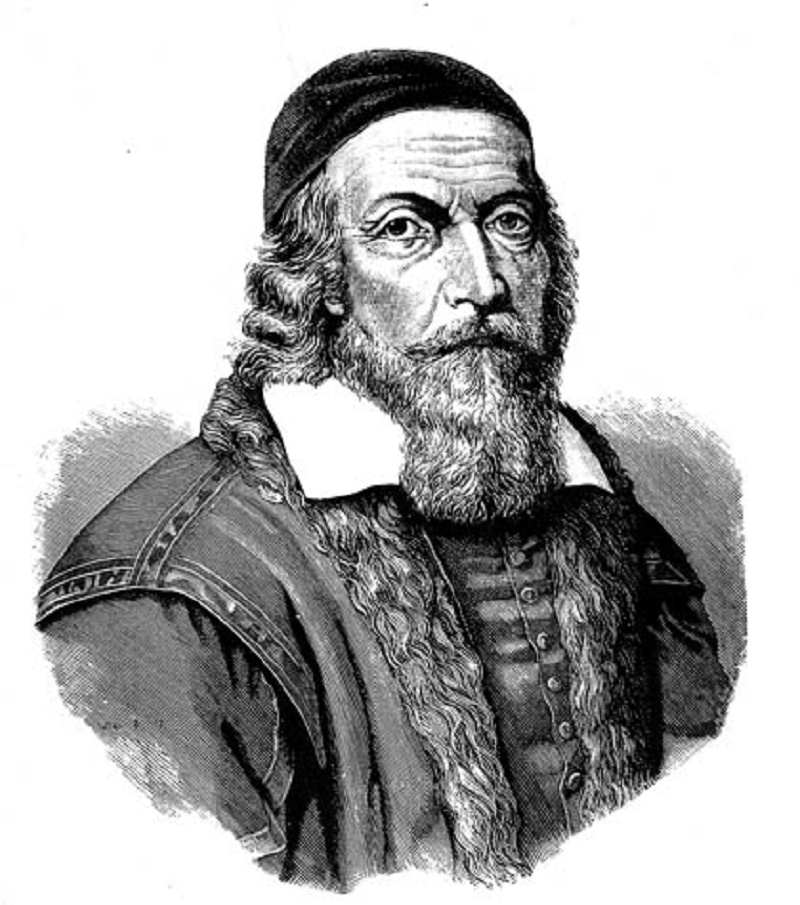 The dictionary defines a Pansophist as “one possessing or pretending to possess all knowledge”. The same dictionary also states that Pansophism had been an ancient religion that “worships everything that lives”.
The dictionary defines a Pansophist as “one possessing or pretending to possess all knowledge”. The same dictionary also states that Pansophism had been an ancient religion that “worships everything that lives”.
As a theologian, Comenius was mystical, a believer in prophecies, dreams and revelations. He was greatly influenced by Boehme. He was also famous for his prophecies and the support he gave to visionaries.
Throughout his life, John Amos Comenius worked for educational, scientific, and cultural cooperation, enlightenment and understanding. He was a philosopher, theologian, cartographer, but most importantly, he was the first modern educationalist.
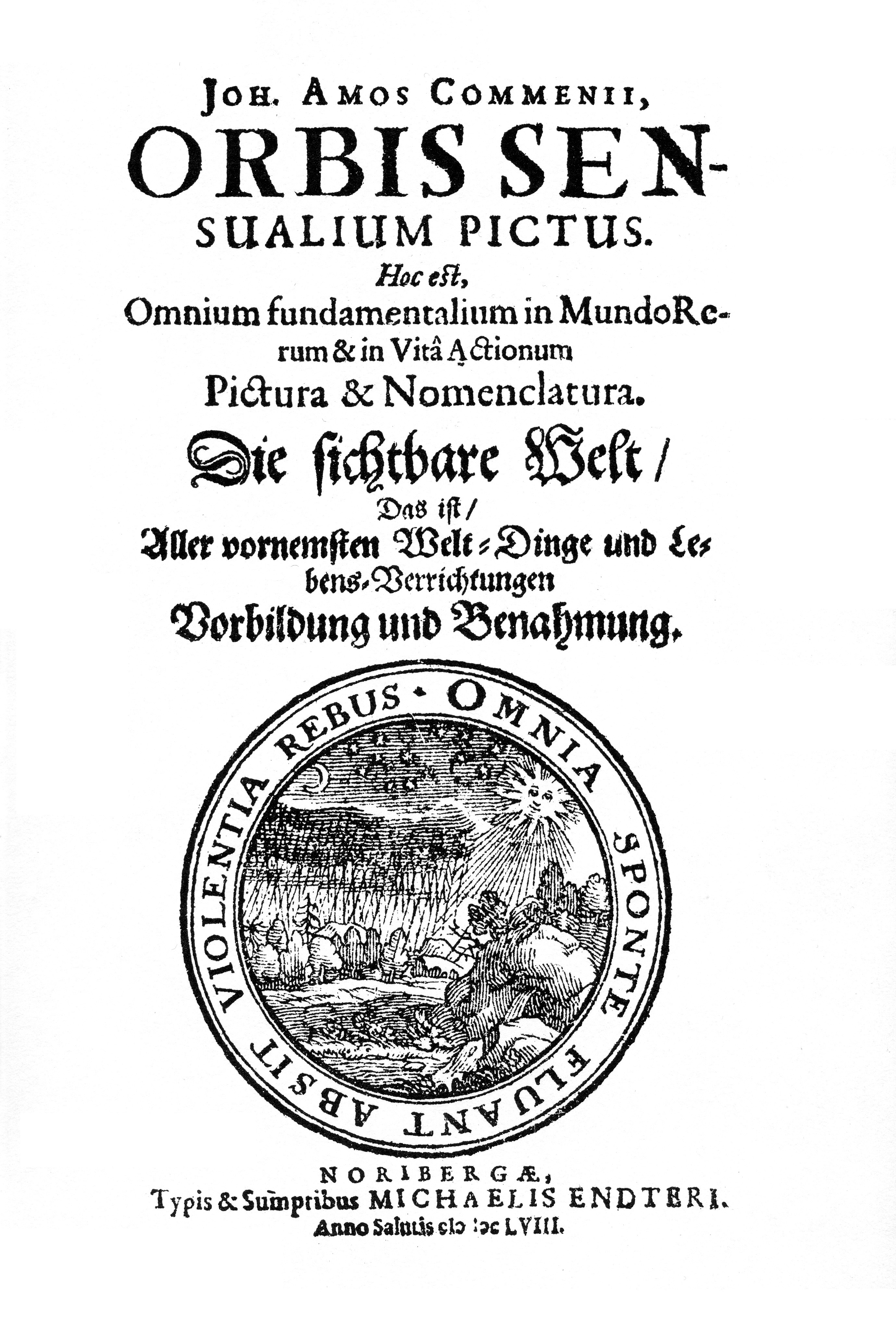 His book, Orbis Pictus, was the the first picture book for teaching children and remained a standard text in Europe (and in America) for over 200 years. Originally published in Latin and German in 1658 in Nuremberg, the book soon spread to schools in Germany and other countries. The first English edition was published in 1659. The first quadrilingual edition (in Latin, German, Italian and French) was published in 1666. The first Czech translation was published in the 1685 quadrilingual edition (together with Latin, German and Hungarian), by the Breuer publishing house in Levoča. In the years 1670 to 1780, new editions were published in various languages, with upgraded both pictures and text content.
His book, Orbis Pictus, was the the first picture book for teaching children and remained a standard text in Europe (and in America) for over 200 years. Originally published in Latin and German in 1658 in Nuremberg, the book soon spread to schools in Germany and other countries. The first English edition was published in 1659. The first quadrilingual edition (in Latin, German, Italian and French) was published in 1666. The first Czech translation was published in the 1685 quadrilingual edition (together with Latin, German and Hungarian), by the Breuer publishing house in Levoča. In the years 1670 to 1780, new editions were published in various languages, with upgraded both pictures and text content.
He even wrote one of the most significant works of Czech literature, the allegorical The Labyrinth of the World and Paradise of the Heart.
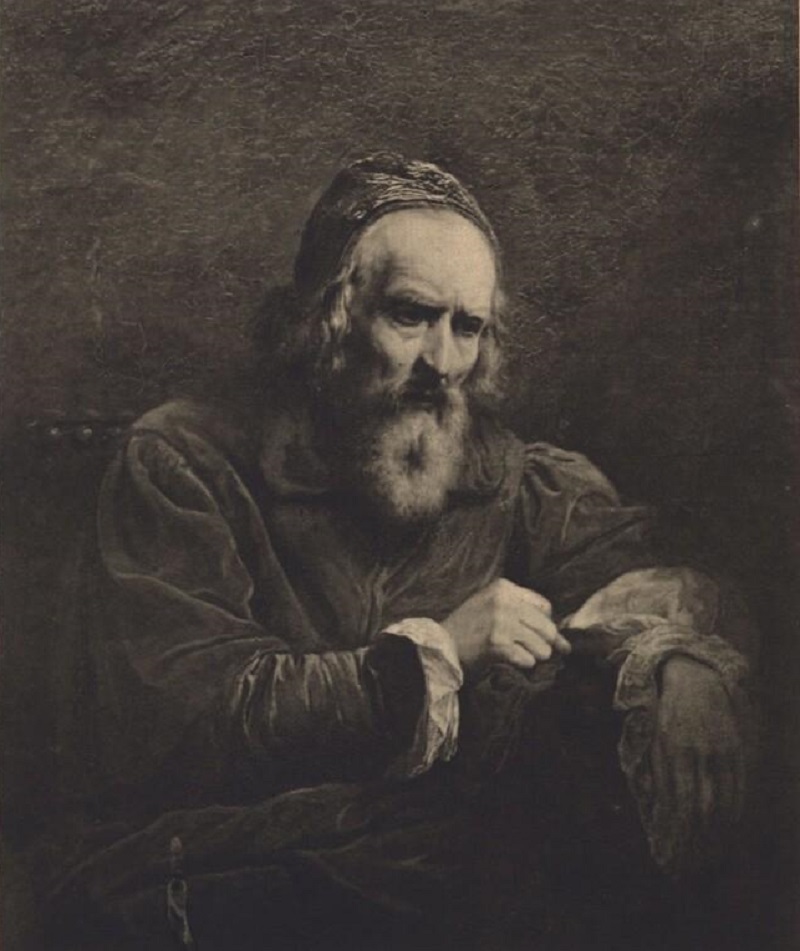 The philosophy of Pansophism presented the goal of education as the development of universal knowledge among all people, including women and children, and all nations. Comenius envisaged educated people as those who sought knowledge from all sources in order to become more like the God in whose image they were made–omniscient and universally compassionate.
The philosophy of Pansophism presented the goal of education as the development of universal knowledge among all people, including women and children, and all nations. Comenius envisaged educated people as those who sought knowledge from all sources in order to become more like the God in whose image they were made–omniscient and universally compassionate.
“If he were alive today, Jan Amos Komensky-Comenius- would be horrified to see the havoc in our Czech school system. The pupils are exposed every day to the stress and arrogance of teachers. It’s the price of living in these times. Money decides everything, and everyone runs after profit– no matter what the cost. Morality, respect and human relationships are left by the wayside.”
If Comenius aimed for any one ideal, it was a synthetic system that, instead of splitting up the disciplines or bodies of knowledge, would bring together all knowledge into one consistent scheme. Comenius called his version of this massive enterprise “Pansophism” which was “the unification of all scientific, philosophical, political, and religious knowledge into one all-embracing, harmonious world view.
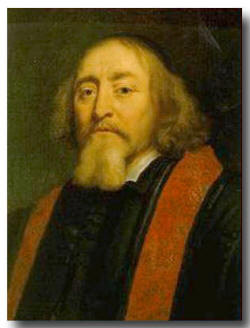 Comenius wrote several textbooks on education. These were so original that they won him the name “Father of Modern Education.” To begin with he saw children through Christ’s eyes: precious gifts from God to be cherished rather than annoyances to be suppressed.
Comenius wrote several textbooks on education. These were so original that they won him the name “Father of Modern Education.” To begin with he saw children through Christ’s eyes: precious gifts from God to be cherished rather than annoyances to be suppressed.
Children will be joint heirs of Christ just as much as their Christian parents. Someday they will rule in the Kingdom of God and judge the very devils. However unimportant they now seem, they are actually of inestimable importance.
Therefore children are to be treated as if more precious than gold.
They should be showered with love.
Material should be adapted to their ability to learn.
Children ought to be dearer to parents than gold and silver, than pearls and gems, may be discovered from a comparison between both gifts of God; for…Gold and silver are fleeting and transitory; children an immortal inheritance. Jan Amos Comenius
Since a combination of words and pictures is more powerful than either alone, the two should be united in children’s texts. Curricula should move from simpler to more complex with repetition and review so that the learner will gain mastery.
Never should children be punished for failing but rather helped and encouraged.
The subjects taught should have practical use. Where possible, demonstration and direct observation should be the norm. If Comenius’ ideas sound highly modern, it is because they were not applied as they might have been for centuries. (It has taken the world a long time to catch up with Comenius, and there is much so much to be mined from his vast writings that would benefit our age.)
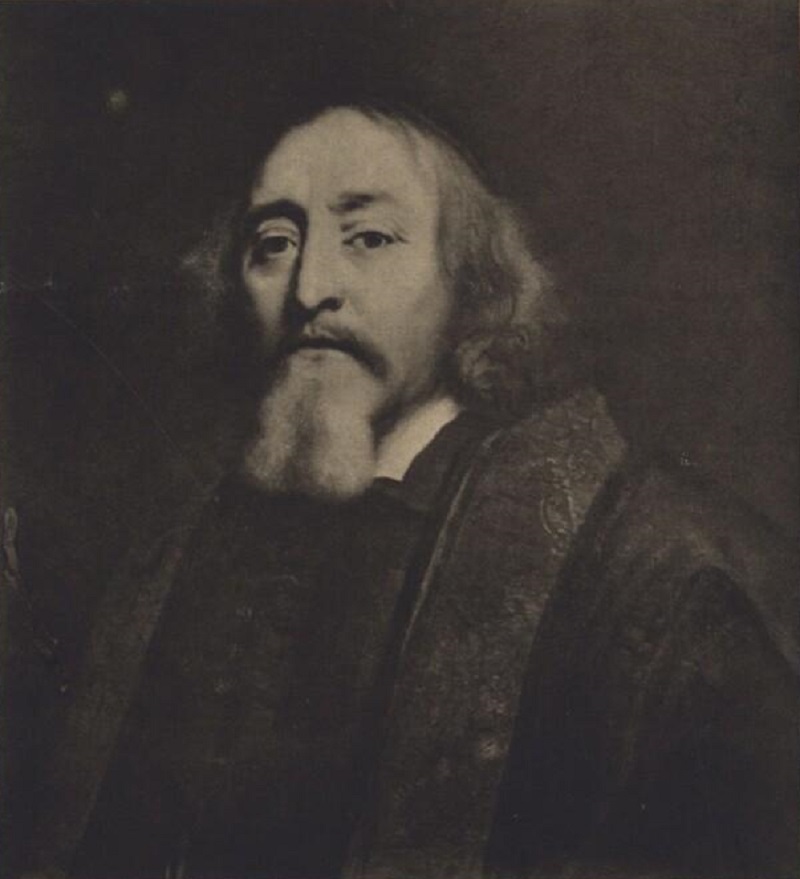 Like modern educators, Comenius used pictures, maps, charts and other visual aids. He even brought drama into the classroom. In his system, there were four grades, equivalent to preschool, grade school, high school and college. He was also an advocate of continuing education, believing that learning should be a lifelong process. He saw the right kind of education as Christ-centered and Pansophist. In Pansophism, spiritual, philosophical and scientific learning is integrated. He hoped that through education mankind might be changed for the better.
Like modern educators, Comenius used pictures, maps, charts and other visual aids. He even brought drama into the classroom. In his system, there were four grades, equivalent to preschool, grade school, high school and college. He was also an advocate of continuing education, believing that learning should be a lifelong process. He saw the right kind of education as Christ-centered and Pansophist. In Pansophism, spiritual, philosophical and scientific learning is integrated. He hoped that through education mankind might be changed for the better.
Based on his beliefs, the ultimate purpose of human life is to become united with God and to obtain eternal bliss in life after death, with life here on earth being the preparation for life after death. For that purpose, everyone should
(1) know all things
(2) become a person who can control things oneself
(3) become like the image of God.
He advocated the necessity of three kinds of education: intellectual education, moral education, and religious education. To teach “all things to all men” was the theme of Comenius’ theory of education. Comenius considered that the talent to realize the goals of education is naturally inherent in people, and it is the role of education to bring out this natural gift, that is, “nature.”
Comenius said that, fundamentally, parents are responsible for education, but should they become unable to do it, schools would become necessary to replace them. According to Comenius, the image of the ideal person was that of a “Pansophist,” or a person who has learned all knowledge concerning God, nature, and human beings.
He tended to think in big pictures and believed that much of life’s learning should be woven together, a concept he called Via Lucis, or “way of light.”
His ideas had both creative and practical perspective, which is one reason we were attracted to the name. During his life, he wrote more than 200 books on his educational system of rounded curriculum and human betterment.
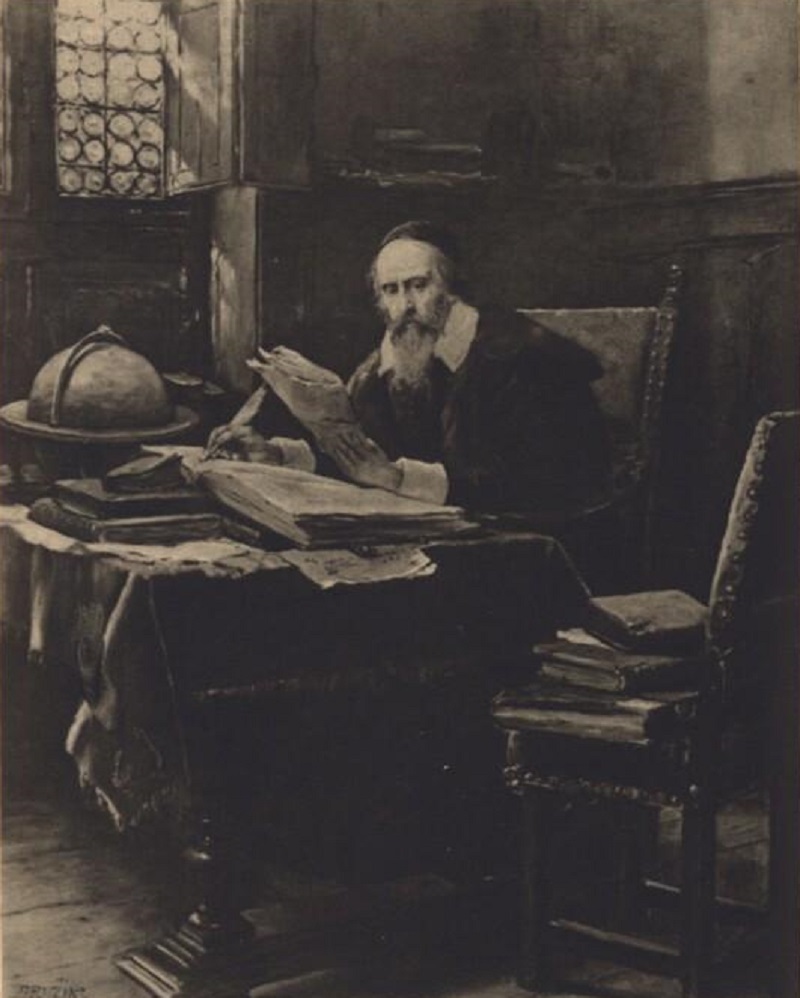 His work has affected human rights and the unity and freedom of mankind all over the world.
His work has affected human rights and the unity and freedom of mankind all over the world.
He became world-renowned for his progressive views of education and was offered the first presidency of Harvard. Comenius, however, never came to America, living most of his life in exiled in England and in Holland where he died. His prayer was that some day the “hidden seed” of his beloved Unitas Fratrum might once again spring to new life.
What can we learn from Comenius?
The Czech people have the spiritual and moral resources for renewal and reform in their Christian forefathers. Komensky is widely recognized as the “father” of modern education. He is much less known for his fervent Protestant Christianity and the way in which the Christian worldview affected every area of his life. He viewed the acquisition of knowledge, in fact of all of life’s experiences, as a spiritual exercise.
As the whole world is a school for the human race… so every individual’s lifetime is a school from the cradle to the grave.
The goal of education, according to Komensky, is the acquisition of wisdom, which is comprised of learning, morality, and the Christian faith. He said that men must be taught eternal things, because being destined for eternity they cannot be ignorant of their end without risk of eternal loss.
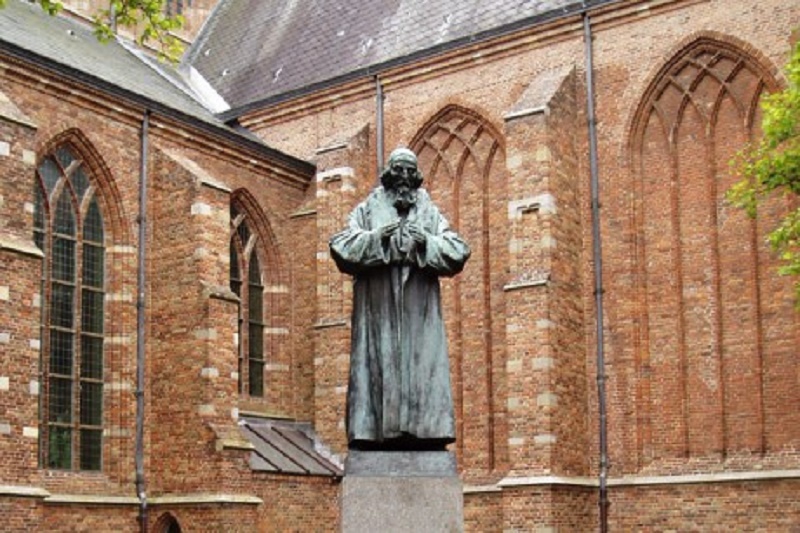 Arguing that Comenius’ ideas have been distorted by Marxist and pragmatist thinkers alike, the present work seeks to relocate them in the Judaeo-Christian traditions from which they sprang. It re-examines the principles of Comenius’ pedagogic philosophy, giving particular attention to the learner-centred methods of teaching which constitute his main legacy to world education. It also explores his radical and farseeing ideas on moral and religious education, peace education, language teaching, the purposes and functions of scholarly research, and the aims and goals of higher learning.
Arguing that Comenius’ ideas have been distorted by Marxist and pragmatist thinkers alike, the present work seeks to relocate them in the Judaeo-Christian traditions from which they sprang. It re-examines the principles of Comenius’ pedagogic philosophy, giving particular attention to the learner-centred methods of teaching which constitute his main legacy to world education. It also explores his radical and farseeing ideas on moral and religious education, peace education, language teaching, the purposes and functions of scholarly research, and the aims and goals of higher learning.
Basic Pansophic principles of Jan Amos Komensky:
(1.) An absolutely new vision of the whole, of the entire world is required .
(2.) A picture of the world should be viewed as unity, in its inherent organization and reality.
(3.) It will result in the “Universalis sapientia” (“Universal knowledge”) which is interconnected by a unity of its laws acting throughout all disciplines and deductible from every one of them.
(4.) “Universal knowledge” will make it possible to clarify, in future, individual and opposed truths and, simultaneously, unite all views within a common objective.
(5.) “Pansofia” will extend all over the world opening boundless opportunities for cognition and perfection.
(6.) When the reality is understood as a unique living organism, all its components reveal their true meaning and the reality itself reveals its laws to people, they will come to a universal harmony.
(7.) Man should apprehend all that and create harmony in himself.
(8.) Man will acquire a universal key and guideline to further cognition and discoveries.
(9.) “Pansofia” is a true vision and understanding of the world, it should become accessible for all peoples of the Earth in their native languages.
(10.) If Man lives in truth and performs his part in the universal harmony chorus, then all people would come to a concord, to peace.
This idea has been energetically supported by the scientists of the 17th century and J.A.Komensky was invited to England to realize this project which was precluded by the civil war. However, the project could hardly have been realized at the time because of inherent cognitive reasons: the contemporary science did not dispose, at the time, of the scientific and methodological means to solve this task.
This project has been realized in its cognitive aspect nowadays, from 1971 to 1975, by author of the Address as the Universal Ontological Model of Social System and Universal Ontological Model of Culture. This universal Knowledge has been discovered irrespective of the “Pansofiae” by J.A. Komensky – the author was ignorant of it – but as a result of a natural cognition process, by way of searching truth for the sake of truth itself.
Comenius contributed greatly to universal education, and it is no wonder that he is considered a symbol of the Czech nation.
You can watch a Czech movie about his life with English subtitles…
His legacy is impressive. For example, Comenius University was founded in Bratislava during 1919. Comenius’ birthday has been declared Teacher’s’ Day in the Czech Republic and Slovakia. A University of Jan Komenský also exists in Prague. A Comenius Foundation has been set up in Poland. UNESCO awards the Comenius Medal to a person who has greatly influenced education.
Note: We decided to refer to him using both versions of his name for searchability purposes.
Thank you in advance for your support…
We know that you could spend hours, days, weeks and months finding some of this information yourselves – but at this website, we curate the best of what we find for you and place it easily and conveniently into one place. Please take a moment today to recognize our efforts and make a donation towards the operational costs of this site – your support keeps the site alive and keeps us searching for the best of our heritage to bring to you.
Remember, we rely solely on your donations to keep the project going.
We appreciate you more than you know!
If you have not already subscribed to get TresBohemes.com delivered to your inbox, please use the form below now so you never miss another post.






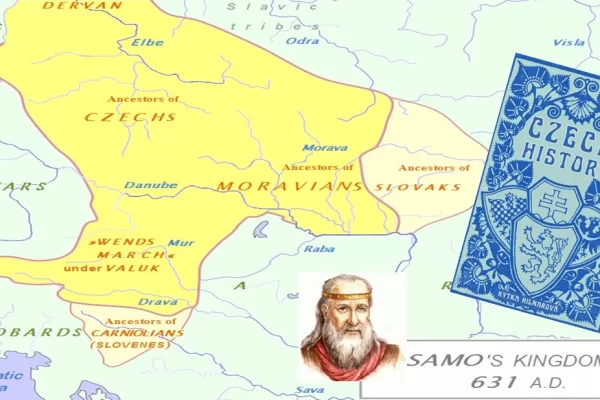















thank you
Great post. Thank you.
Very good to know. Thanks.
Thank you for sharing this information and especially the movie at the end. I enjoyed it very much so again, thank you.